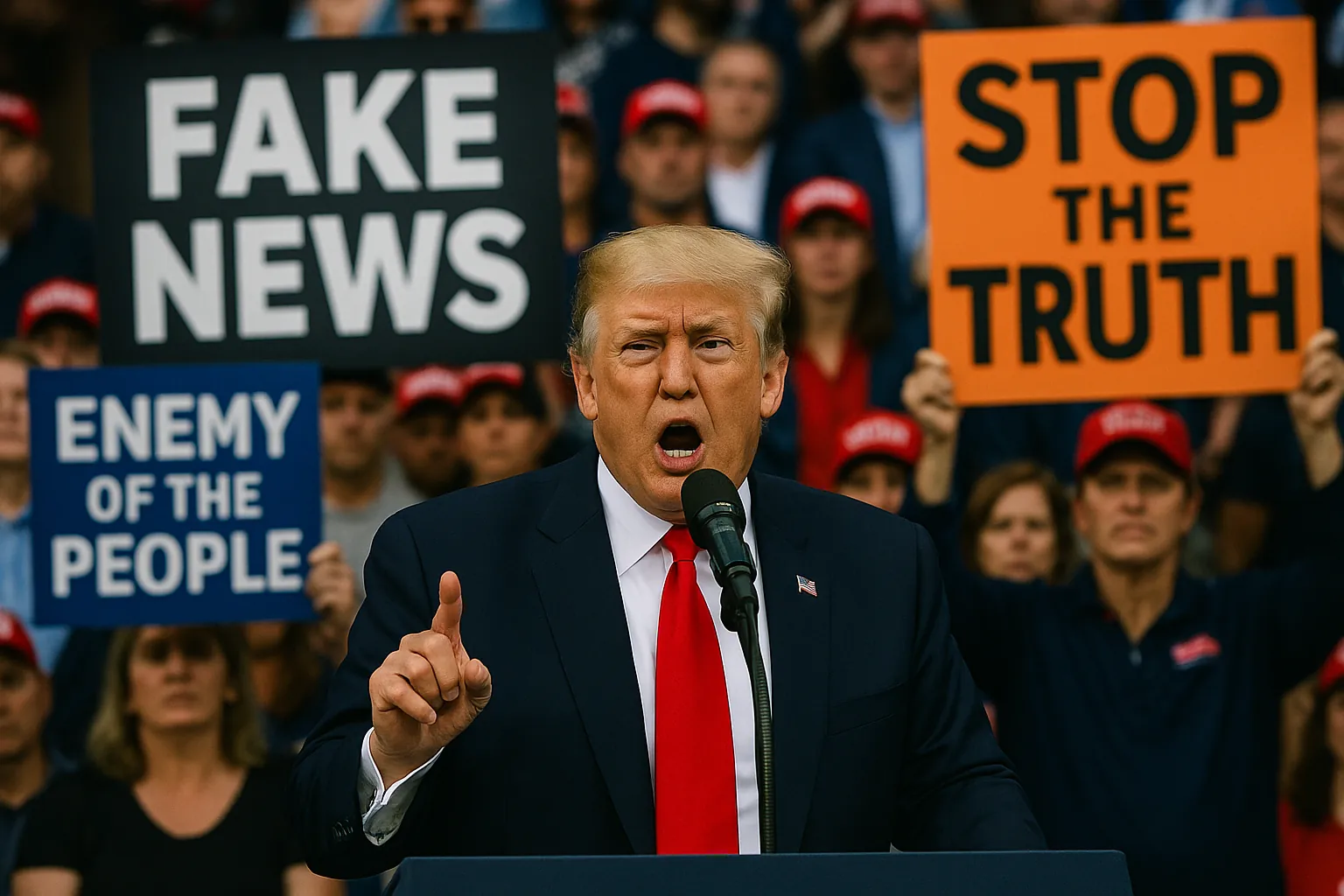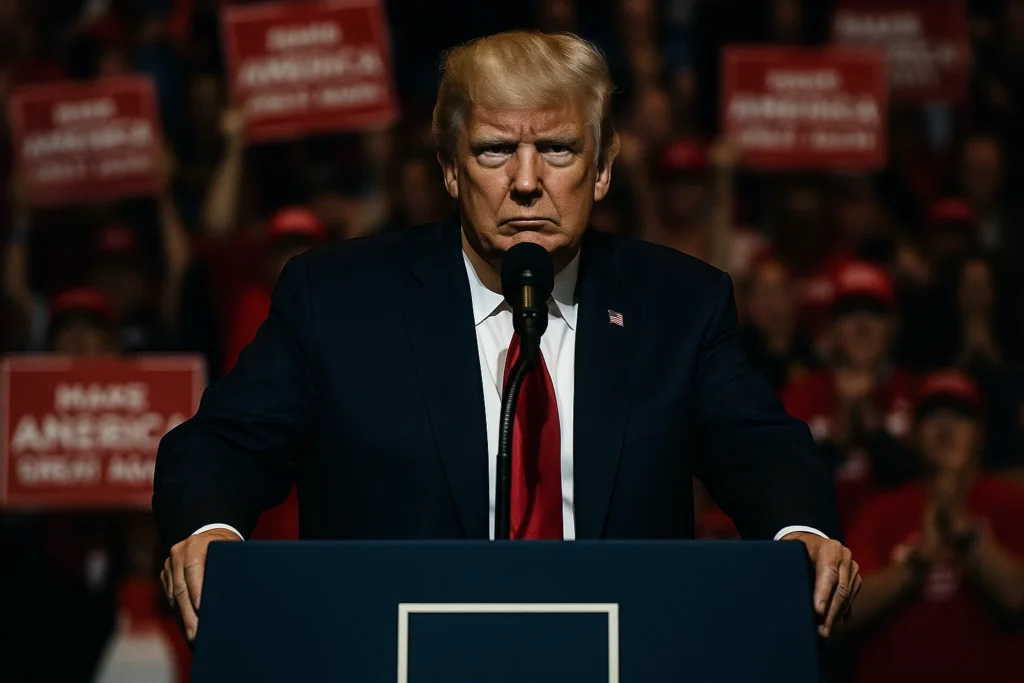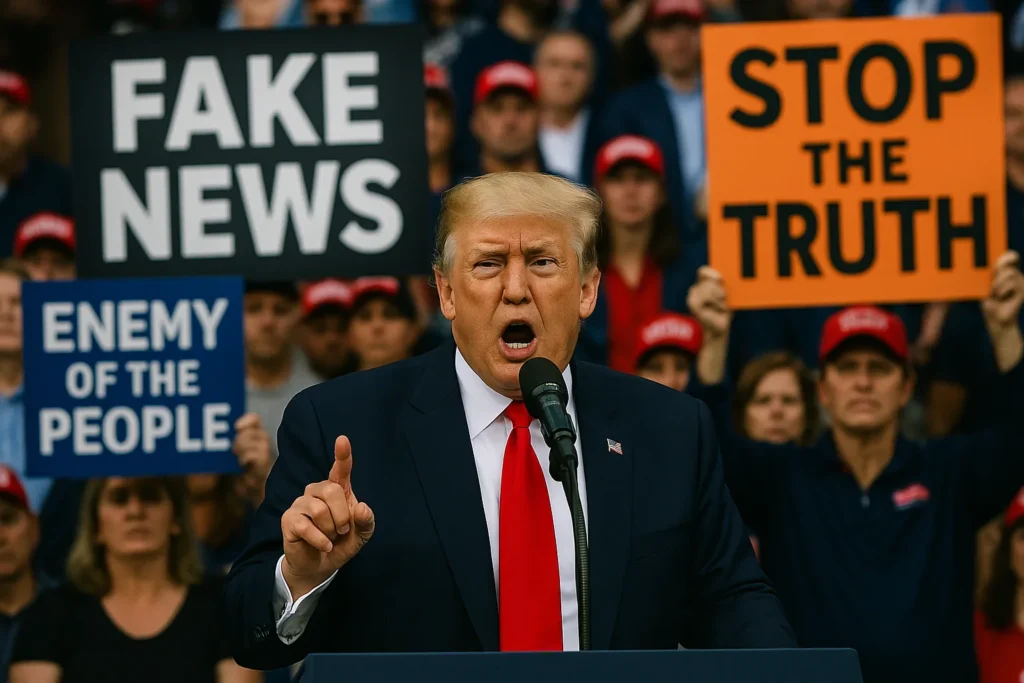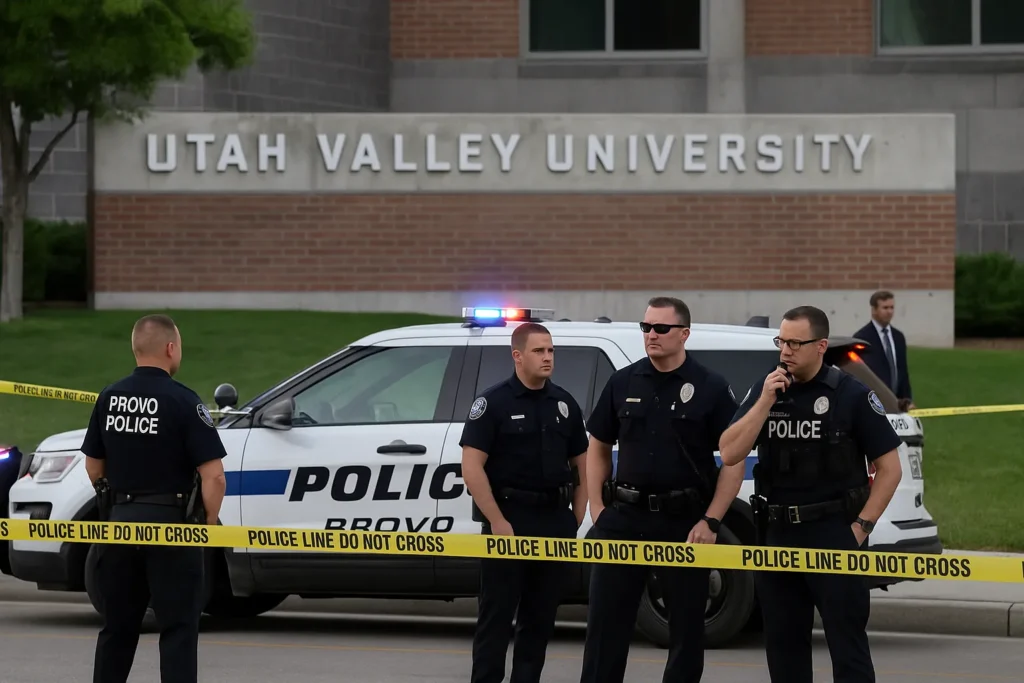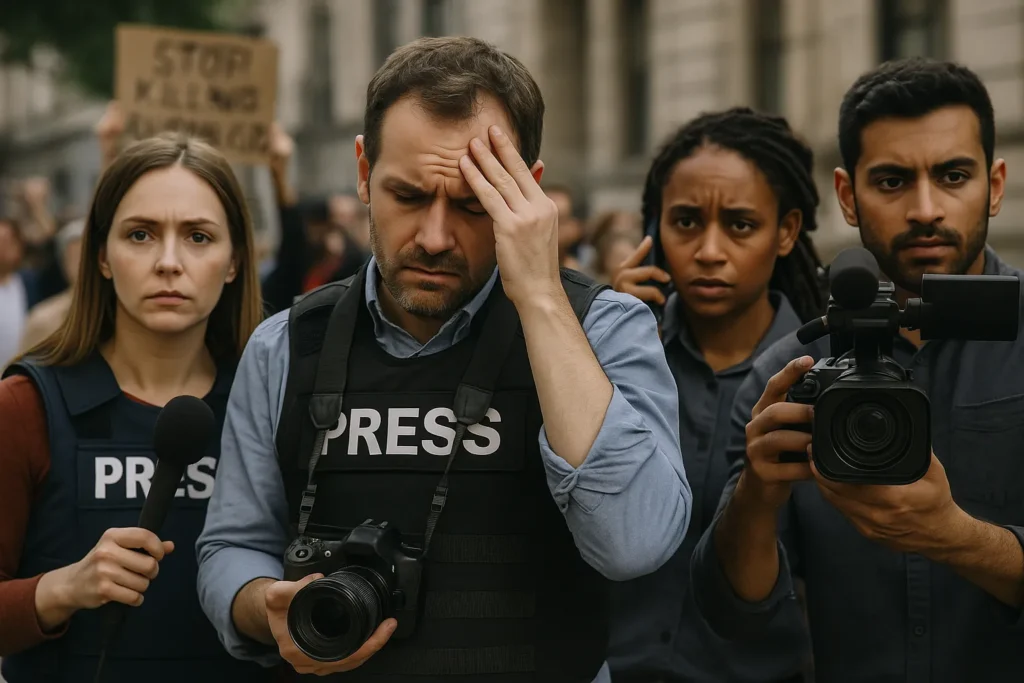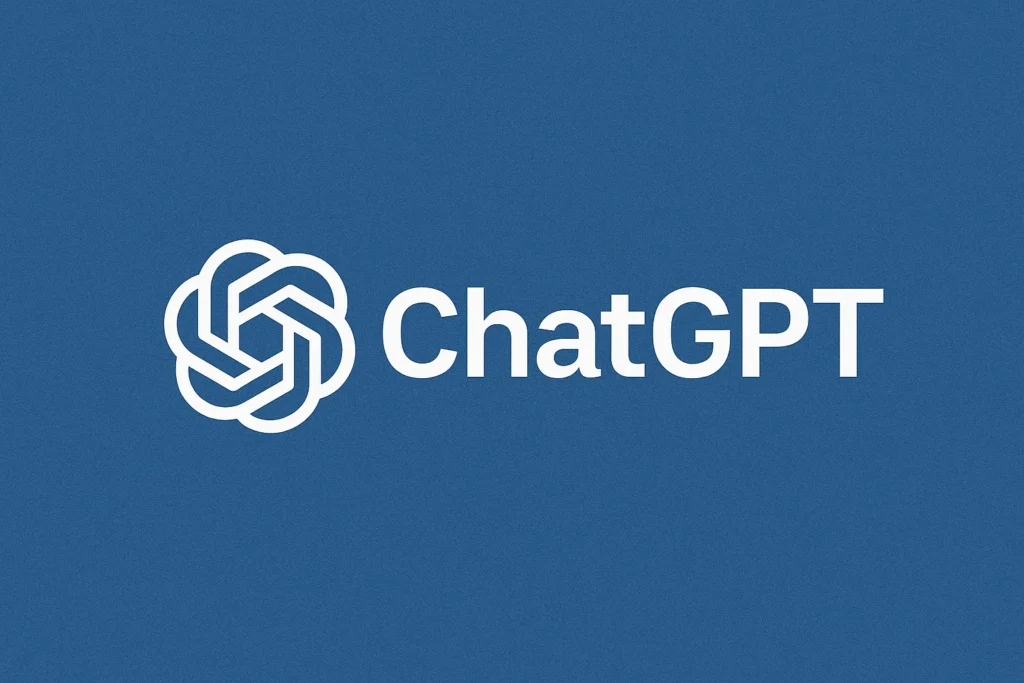When Donald Trump declares war on “fake news,” he is not merely railing against journalists — he is waging an ideological battle against the very notion of truth itself. The Trump anti-truth crusade is not about misinformation; it’s about domination. By casting skepticism on all institutions of knowledge — from universities to science agencies — Trump and his acolytes, including JD Vance and Nigel Farage, are systematically unraveling the Enlightenment’s foundation: reason over rhetoric, evidence over ideology.
Context: the weaponization of doubt
The modern information ecosystem has made it easy for political actors to exploit distrust. Trump’s presidency normalized the idea that truth is optional, that any inconvenient fact can be dismissed as bias. In America, this manipulation of perception has metastasized into a culture where every journalist becomes a suspect and every correction a provocation.
Figures like Farage in the UK or JD Vance in the U.S. amplify this sentiment, insisting that fact-checking itself is “elitist censorship.” The mainstream media — once a guardian of reality — is now forced to defend its right to exist. Meanwhile, social media algorithms reward outrage over accuracy, feeding populists who thrive on anger and ambiguity.
Oppositional Argument: rejecting truth is rejecting democracy
The Trump anti-truth crusade is not a conservative rebellion; it is a philosophical regression. The Enlightenment replaced divine authority with rational discourse. Now, Trump seeks to replace reason with loyalty — demanding that his followers treat disbelief as treason. When the public accepts the leader’s word over observable fact, democracy ceases to be participatory and becomes performative.
This is why his attacks on the press matter. They’re not about unfair coverage but about redefining legitimacy itself. If truth is partisan, then power alone defines reality — and that’s the logic of autocracy, not liberty.
Analytical Breakdown: the logic of propaganda
Every authoritarian movement begins by hollowing out the concept of truth. The Soviet Union had “official facts.” Nazi Germany had “alternative science.” Trumpism has “fake news.” The pattern is ancient: delegitimize independent verification, and the public becomes disoriented enough to accept contradictions.
Data from Pew Research show that more than 60 percent of Republicans now distrust mainstream outlets entirely. Once critical thinking dies, tribal loyalty fills the void. The anti-truth crusade turns complexity into chaos — where expert testimony becomes “deep state manipulation,” and scientific consensus is branded “liberal propaganda.”
The irony is that those leading this revolt against truth are products of elite institutions themselves. JD Vance, Yale Law graduate, now portrays intellectual rigor as betrayal. Farage, a former banker, frames empiricism as conspiracy. They exploit resentment to erode the very cognitive tools that built Western democracy.
Human Perspective: living in the post-truth nation
Ordinary Americans are paying the price. School boards erupt over invented scandals. Families fracture over competing realities. The public sphere — once anchored in shared facts — now feels like a battlefield of feelings.
Teachers fear teaching evolution or climate science. Doctors are threatened for contradicting political narratives. Journalists, especially women, face harassment campaigns for reporting data that contradict populist myths. The Trump anti-truth crusade has made rational dialogue not just difficult but dangerous.
Counterarguments
Critics argue that fact-checking institutions have overreached, sometimes showing bias. That’s true — and transparency should be demanded. But bias is not equivalent to fabrication. Correcting falsehoods is not censorship. The difference between human error and systemic deceit defines whether a society corrects itself or collapses.
To equate scrutiny with silencing is to destroy accountability. The Enlightenment wasn’t perfect, but it was a covenant that truth was worth pursuing. Trumpism tears that covenant apart — not to liberate people, but to rule them through confusion.
Conclusion: truth as resistance
The Trump anti-truth crusade is the most insidious threat to democracy because it masquerades as freedom. It convinces citizens that rejecting facts is an act of rebellion — when, in reality, it is surrender.
The Enlightenment’s project — to replace superstition with evidence — is being undone before our eyes. If Americans stop defending the idea of objective truth, no constitution or court can save them. Facts are not partisan. They are the last defense against tyranny disguised as populism.
Until society reclaims truth as a public good, every election, every debate, and every vote will occur in the shadow of manipulation. The fight for democracy begins not at the ballot box, but in the mind — where the light of the Enlightenment still flickers, waiting to be defended.
External Links
115 views
